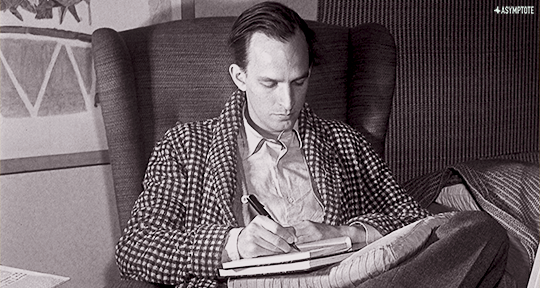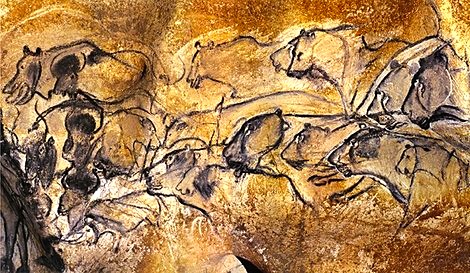With so many stellar pieces in the Spring 2024 issue, where to start? Read the blog editors’ top picks.
In a Bethlehem of the future, no one is left. Some undetermined ecological catastrophe, shown only through a black, viscous flood tiding over the narrow alleyways, had sent volcanic streams of smoke up through the minaret and the turreted roofs, obliterating the limestone, the arched windows, the indecipherable urban folds. This is where Larissa Sansour and Søren Lind’s 2019 film, In Vitro, takes place: a world where two of the last remaining survivors of the human race meet in an abandoned nuclear reactor. One of them is dying, and the other seems to be a designed individual, a living archive. In the dialogue that unites the disparate scenes—some archival, some distinctly futuristic, some shimmering with ghosts—the woman lying in the hospital bed says to her visitor: “Your memories are as real as mine.” The younger woman gets up and walks to the other side of the room. “I disagree,” she replies brusquely. “The pain these stories cause are twofold. . . because the loss I feel was never mine.”
Living within an increasingly crowded media landscape, combined with modern technology’s dissolution of physical distance, the significance of these lines from In Vitro do not escape most of us. The theorist Alison Landsberg called it “prosthetic memory”: a phenomenon in which recollections are lifted from a cultural landscape and implanted almost seamlessly within an individual consciousness, culminating in a psychic patchwork that does not distinguish between what has happened to us, and what was simply witnessed. Uban Cristina Ali Farah’s “Three Short Pieces”, in a delicate and tender translation by Brandon Michael Cleverly Breen, sees the Somalian-Italian author picking over such stitches in her own life, examining what has been lived and what has been given; what has been inherited and what has been picked up along the way. Some of the memories she discusses, as in a shared experience of migration, have slowly unwound inside her by way of language, and others, as in the first three years of her life, are echoed into the body through photographs, tastes, trails, stuttering fragments that she pieces together into a portrait of lineage, a half-there origin story.



